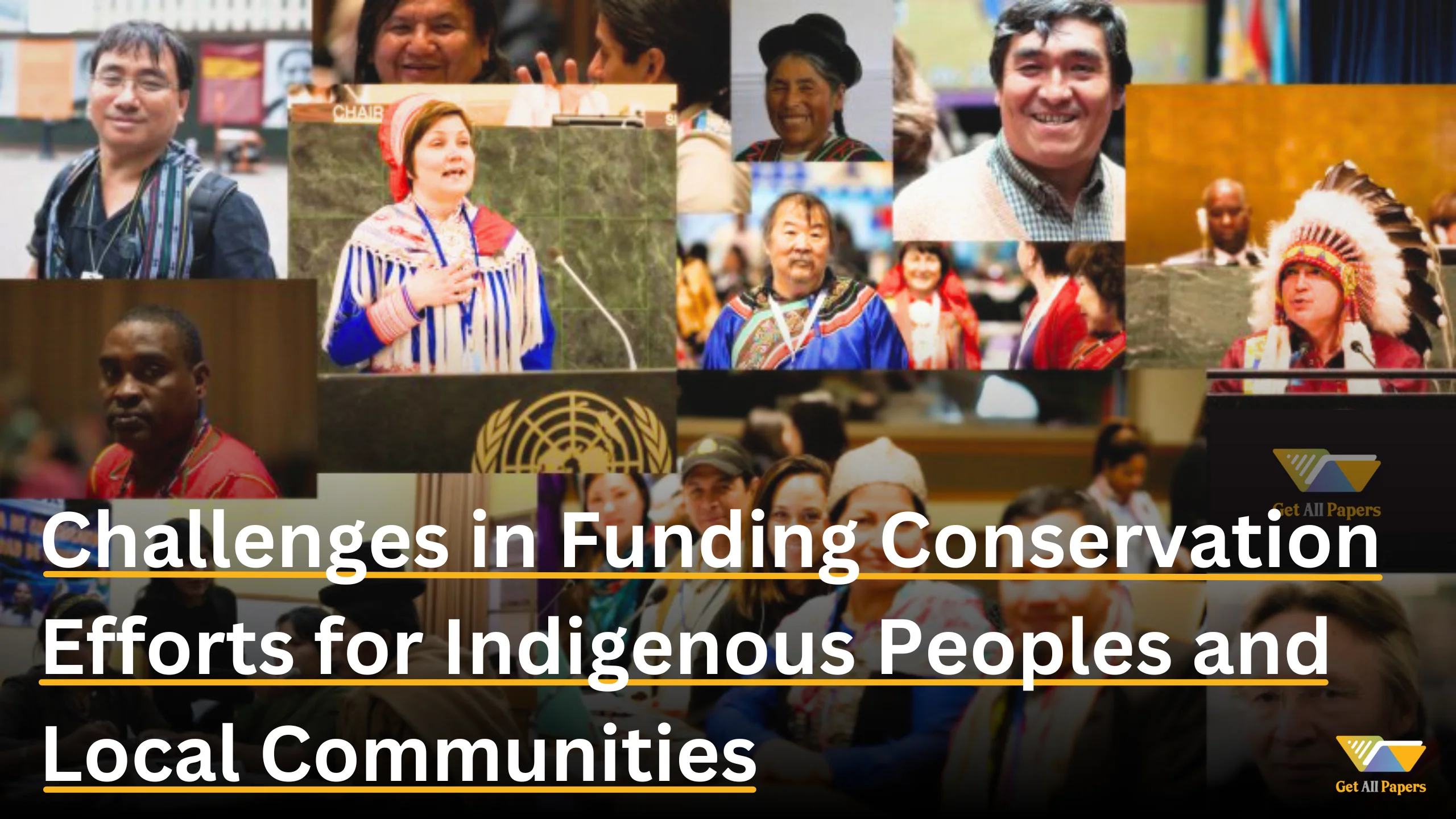
Challenges in Funding Conservation Efforts for Indigenous Peoples and Local Communities
Written By: William P. Leblanc
Published On: Aug 17,2023
Introduction
Conservation of our planet's biodiversity is a global imperative, essential for maintaining ecological balance, preserving cultural diversity, and ensuring the survival of countless species. Indigenous peoples and local communities (IPLCs) often play a pivotal role in safeguarding their environments, as they possess unique knowledge, traditions, and a profound connection to the land. However, despite their crucial role, IPLCs face significant challenges in securing funding for their conservation efforts. This essay explores the multifaceted challenges faced by IPLCs in obtaining financial support for their conservation initiatives and suggests potential solutions to address these issues.
1. Inadequate Access to Financial Resources
One of the primary challenges IPLCs face in funding conservation efforts is inadequate access to financial resources. Many IPLCs live in economically disadvantaged areas, lacking the financial means to support comprehensive conservation programs. This lack of access to capital can hinder their ability to engage in conservation activities, such as habitat restoration, anti-poaching efforts, and sustainable resource management.
Furthermore, traditional economic systems in many IPLC communities may not align with conventional funding mechanisms. These communities often practice subsistence agriculture, hunting, and gathering, which do not generate significant cash flows. Consequently, IPLCs are at a disadvantage when competing for funding with more economically developed entities.
2. Limited Recognition and Inclusion
Another major challenge is the limited recognition and inclusion of IPLCs in conservation decision-making processes. Despite their essential role as stewards of biodiversity, IPLCs are frequently excluded from discussions on conservation strategies and funding allocation. This exclusion leads to a lack of representation and voice in shaping policies that directly affect their lands and livelihoods.
To address this issue, it is crucial to involve IPLCs in the planning and implementation of conservation projects. Their traditional knowledge can contribute invaluable insights into sustainable practices, and their active participation can ensure the success and long-term viability of conservation initiatives.
3. Complex Legal Frameworks and Land Tenure Rights
Legal frameworks related to land tenure and property rights can be convoluted and pose significant obstacles to securing funding for IPLC-led conservation efforts. Many IPLC communities lack formalized land rights, making it challenging to secure financial support for conservation activities on their ancestral lands. This lack of legal recognition not only limits their ability to access funding but also leaves them vulnerable to land encroachment and exploitation by external actors.
To address this challenge, governments and international organizations must work to clarify and formalize land tenure rights for IPLCs. This would not only protect their territories but also facilitate their access to funding for conservation initiatives.
4. Inequitable Distribution of Conservation Funds
Another challenge arises from the inequitable distribution of conservation funds. Historically, the majority of funding has been channeled through large, international conservation organizations or government agencies, which often have complex bureaucratic processes. IPLCs, with their limited resources and familiarity with these processes, face significant hurdles in competing for these funds.
To overcome this challenge, there is a need to establish more accessible funding mechanisms that are specifically tailored to IPLCs' needs. This could include grants, technical support, and capacity-building initiatives designed to empower IPLC communities to manage their conservation projects effectively.
5. Lack of Capacity and Technical Expertise
IPLCs often lack the technical expertise and capacity to develop and manage complex conservation projects. This can be a significant barrier when applying for funding, as donors often require detailed project proposals, budgets, and monitoring plans. Additionally, IPLCs may struggle with implementing sustainable conservation practices, further hampering their ability to secure funding.
To address this challenge, capacity-building programs and partnerships with conservation organizations can provide IPLCs with the necessary skills and knowledge to design and manage successful conservation initiatives. These programs should be tailored to the specific needs and circumstances of each community, fostering self-reliance and long-term sustainability.
6. Overlapping Priorities and Conflicts
Conservation initiatives often intersect with other development priorities, leading to conflicts over resource allocation. IPLCs may prioritize food security, health, and education over conservation efforts, especially when faced with immediate survival challenges. This can create tension when seeking funding for conservation, as donors may have different priorities.
To address this challenge, a holistic approach that integrates conservation with IPLCs' development needs is essential. Funding should be flexible enough to accommodate these diverse priorities, recognizing that sustainable development and conservation are interconnected goals.
Conclusion
Conservation efforts led by Indigenous peoples and local communities are vital for preserving biodiversity and safeguarding our planet's ecosystems. However, IPLCs face numerous challenges in securing funding for their conservation initiatives, including inadequate access to financial resources, limited recognition and inclusion, complex legal frameworks, inequitable distribution of funds, lack of capacity, and conflicts with other development priorities.
Addressing these challenges requires a concerted effort from governments, international organizations, and the broader conservation community. This includes providing IPLCs with better access to financial resources, recognizing their traditional knowledge and land rights, simplifying funding mechanisms, building capacity, and integrating conservation with broader development goals. By addressing these challenges, we can empower IPLCs to continue their invaluable role as custodians of our planet's biodiversity and ensure a more sustainable and equitable future for all.
To check out more about recent scenarios and ongoing situations in the world, visit getallpapers.com.
Related Posts
Popular Article

A guide to write a reflective essay
12.1.2023

A guide to write a reflective essay
20.1.2023

Explain the tricks to write a biography
10.2.2023




